What is Sleep Apnea? – Topeka, KS
Learn More About How Sleep Apnea Affects Your Health
Simply put, sleep apnea is a tricky health problem. Your routine seems straightforward enough – you head to bed, close your eyes, and drift off to dreamland. However, when you wake up, it feels like you’ve pulled an all-nighter instead. Many confused patients simply try to power through their chronic exhaustion with lots and lots of caffeine – and there are millions of them all over the country! In fact, more than 25 million American suffer from sleep apnea, and that number will likely only increase as more years go by.
If you’ve ever wondered what sleep is apnea? Our Topeka, KS sleep apnea dentist is here to review the symptoms and whether or not you might be an unwilling victim of it, so look no further than this page. Dr. Michel and the rest of our team are here to help, and we’d be happy to welcome you in soon for a consultation at our office. Contact us today!
Why Choose Sleep Solutions by Michel Dental for Sleep Apnea Treatment?
- Customized Sleep Apnea Appliances
- High-Tech Diagnostic Technology Used
- Sleep Dentist with Decades of Experience
Sleep Apnea: The Basics

Sleep apnea occurs when a person experiences temporary lapses of breathing while they’re in a state of rest. These lapses typically only last for seconds, but they can occur dozens or even hundreds of times each hour, which fractures deep sleep. As a result, the person doesn’t achieve the regenerative rest they need to function at a high level the following day.
When your breath is cut off, a few different consequences happen in quick succession. The brain will essentially start to panic, which raises blood pressure. This heightened level may even linger after breathing returns to normal, which results in a higher risk of related diseases like strokes and heart attacks. Then, an emergency signal jolts the person to wake up in order to properly restore respiration. These interruptions are so brief that most people don’t even remember them in the morning – but the body does.
What Causes Sleep Apnea?
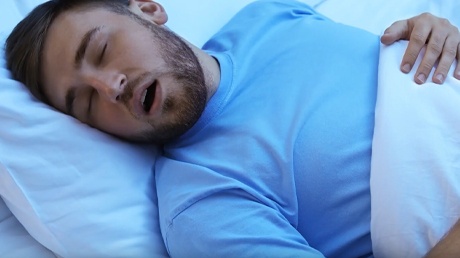
There are two major distinctions of sleep apnea: Obstructive Sleep Apnea (OSA) and Central Sleep Apnea (CSA).
OSA is by far the more common variation, and it’s directly caused by a partial or full blockage of the airway due to an overrelaxed throat and/or the collapse of soft tissue in the airway. There are several bodily factors that can contribute to the risk of developing OSA, such as having large tonsils, an overly thick neck, or even a chronic stuffy nose. Obesity is another common risk factor because fatty tissue around the throat tends to make the area narrower and more likely to close off during sleep.
Meanwhile, CSA is a pure neurological issue. Simply put, the brain doesn’t properly signal the patient’s body to breathe while they’re unconscious. CSA can occur because of several different health conditions, from strokes, kidney/heart failure, and even the regular use of opiates.
Learn More About Central Sleep Apnea
What are the Symptoms of Sleep Apnea?

While no two cases are exactly alike, patients who regularly experience the following symptoms may be suffering from sleep apnea:
- Persistent, chronic exhaustion during the daytime hours
- Overly loud snoring
- Noticeable mood swings and/or depressive episodes
- Regularly waking up gasping for air or feeling breathless
- Unexplained weight gain (or difficulty with losing weight)
- Hypertension
- Waking up in the mornings with a sore throat and/or headache
- Problems with memory and concentration
- Sexual dysfunction
Do You Have Jaw or Bite Problems? It May be Sleep Apnea
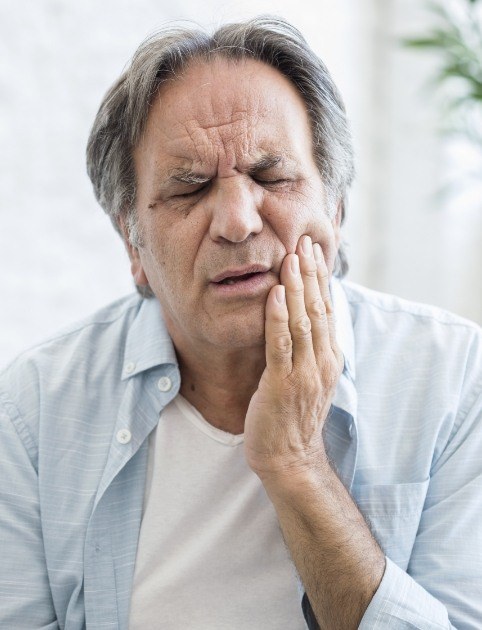
The temporomandibular joint (also known as the TMJ) facilities essential movements of the jaw, allowing patients to open and close their mouths, speak, eat, and even yawn. Unfortunately, circumstances like jaw injuries, misaligned bites, and even the onset of arthritis can lead to temporomandibular disorders, or TMD. What many patients don’t realize is that a significant number of TMD sufferers are also experiencing sleep apnea. When the airway collapses, the body is likely to push the lower jaw forward unconsciously in order to try to clear it again. This constant motion can cause a great deal of stress and tension in the TMJ night after night, which is why these two painful and exhausting disorders are likely to go hand-in-hand.
Thankfully, Dr. Michel has years of experience and specialty training in not only dental sleep medicine, but the non-surgical treatment of temporomandibular joint dysfunction as well. In fact, he’s been successfully alleviating TMJ disorder cases for over 30 years and counting! This unique intersection of expertise allows him to seamlessly integrate the two types of treatment so that patients can achieve lasting, pain-free relief.
How is Sleep Apnea Diagnosed?
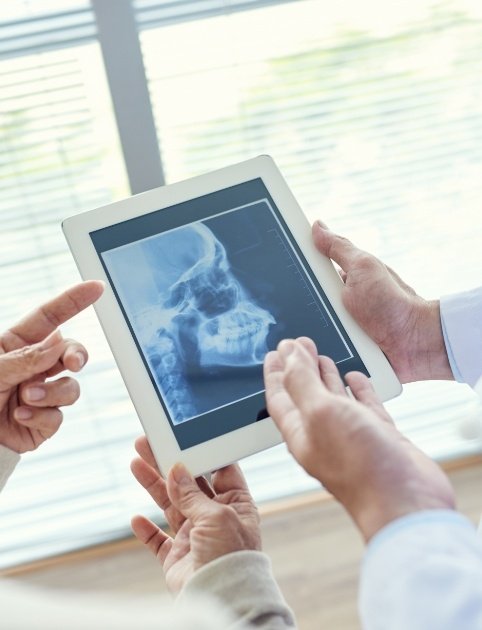
First, you’ll need to visit a physician, who will ask about your symptoms and when they began. (If you have a partner or a roommate, ask them whether they’ve heard you snore loudly or make choking noises while asleep.) They can then help you arrange a sleep study, which can be done at a sleep center or in your own home. These tests will measure your brain waves, heartbeat, breathing and movement during the night. This will help us narrow down whether or not you’re suffering from sleep apnea or another kind of sleep disorder.
Learn More About How Sleep Apnea is Diagnosed
How Do You Treat Sleep Apnea?

Are you concerned that you may be a victim of untreated sleep apnea? Please contact us or your general physician as soon as possible. An easy way to get started is to complete the STOP-BANG Assessment, which allows our team to evaluate your overall risk with the help of a few cut-and-dry questions. If we determine that the taker of the Assessment likely suffers from sleep apnea, we can help them proceed to using an at-home sleep test that monitors their breathing patterns throughout the night. The results from this test should then lead to a proper diagnosis.
If a patient is officially diagnosed with sleep apnea, the next question is “what’s the best way to treat it?” CPAP therapy has been used for many years, which involves wearing a facial or nasal mask that’s connected to an air pump. However, many patients find it too uncomfortable to use on a regular basis. That’s where Dr. Michel comes in!
If you have mild to moderate OSA and/or have proven intolerant to CPAP use, our team can provide a custom oral appliance. This basically works like a small mouthguard that helps keep the airway safely open as you rest peacefully. Most patients find this therapy option much more convenient and pleasant! Visit this page to learn more.
Learn More About How to Treat Sleep Apnea
Snoring: A Dangerous Annoyance

After chronic fatigue, loud snoring is one of the most common indicators of sleep apnea. Far too many people simply write it off as an annoying habit their spouse or roommate has – but don’t ignore it! While snoring isn’t necessarily a surefire sign of sleep apnea, it does mean that they may not be sleeping very well. Plus, chronic snorers do have an elevated risk of developing sleep apnea in the future. Thankfully, custom oral appliance therapy can also help these patients, improving not only the quality of their own rest, but the rest of everyone who sleeps in close proximity too.
Understanding the Cost of Sleep Apnea Treatment

Our practice proudly offers oral appliance therapy to help you enjoy a good night’s rest once again. After your consultation, we’ll craft a personalized treatment plan that best fits your lifestyle, budget, and insurance coverage. At Sleep Solutions by Michel Dental, we’ll support you every step of the way, ensuring transparent and straightforward care. We accept medical insurance, Medicare, and offer low-interest financing to make it easier for you to access the life-changing care you need.
Does Dental Insurance Cover the Cost of Sleep Apnea Treatment?
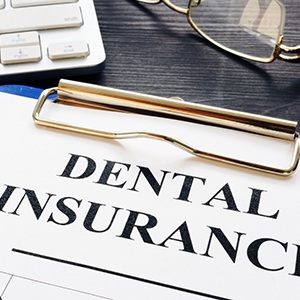
Short answer: no, dental insurance does not typically cover sleep apnea treatment. This type of care is actually billed through medical insurance, and most plans do offer some form of full or partial coverage for both CPAP machines and oral appliances. At Sleep Solutions by Michel Dental, our knowledgeable team can help you navigate your personal benefits and maximize deserved reimbursements so that affording the ideal sleep apnea treatment is stress-free.
Factors That Affect the Cost of Sleep Apnea Treatment
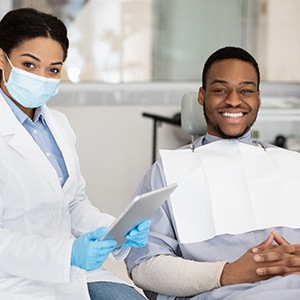
Several factors can influence the cost of sleep apnea treatment in Topeka. During your consultation, we will guide you through your treatment options and address any questions you have about our services.
The primary factors affecting your out-of-pocket expenses are the type of therapy you choose, and the extent of coverage provided by your insurance. With the appropriate documentation (i.e., your sleep study results, clinical notes from your diagnosis, and your sleep doctor’s prescription) we can let you know in advance how much your medical insurance will cover. Our goal is to be fully transparent throughout the entire process, so you know exactly what to expect at every stage.
Treat Your Sleep Apnea Now to Improve Your Health

Not sure whether it's worth diagnosing and treating your sleep apnea? Well, the answer is a resounding yes! Failing to address the disorder can negatively affect your finances and overall health, leading to serious conditions like stroke, heart disease, diabetes, hypertension, and depression.
One study found that undiagnosed sleep apnea costs U.S. adults a collective $149.6 billion. Treating your sleep apnea before it leads to chronic health issues and a reduced quality of life can save you thousands in medical bills and offer invaluable benefits to your overall health.
Making Sleep Apnea Treatment More Affordable
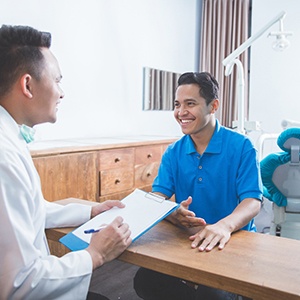
Sleep Solutions by Michel Dental will gladly file medical insurance claims on your behalf to ensure you get the most out of your benefits. We also want to ensure high-quality sleep apnea treatment is easily accessible to patients all over Kansas, which is why we also accept Medicare.
If you don’t currently have insurance, we can help you sign up for third-party financing through CareCredit. With this option, you can split up the total cost of your care into smaller monthly payments that fit your budget. To explore your payment options, don’t hesitate to give us a call.
Start Working Towards Better Sleep!

Sleep apnea can have severe, lasting consequences for your health, your personality, and your quality of life – so why put up with it any longer than you have to? Effective treatment is readily available here in Topeka, KS. Contact Dr. Michel today!
Sleep Apnea FAQs
Can I Diagnose Sleep Apnea on My Own?
Once you’re familiar with the warning signs of sleep apnea, you may think that you can diagnose the disorder on your own. However, the presence of symptoms doesn’t necessarily guarantee that you’re suffering from sleep-disordered breathing. The only way to have sleep apnea diagnosed is to have a sleep test performed. This is a major part of the reason why it’s so important to see a physician as soon as possible once you have any cause to believe that you are currently suffering from sleep apnea.
What Does Sleep Apnea Look Like for Women?
Women with sleep apnea tend to have different symptoms in men. This has unfortunately caused the disorder to be underdiagnosed in women. It’s vital to have a firm grasp of what warning signs to look out for so that you can have sleep apnea addressed as soon as possible.
Examples of symptoms that women with sleep apnea might experience are insomnia, morning headaches, depression, and feelings of anxiety. Also, it’s worth noting that obstructive sleep apnea tends to occur more frequently in women who are pregnant, past menopausal, or overweight.
Will My Sleep Apnea Go Away If I Lose Weight?
Since being overweight can increase your risk for sleep apnea, losing weight can often make a difference. Specifically, it can reduce the presence of tissues in the throat that could potentially obstruct the airway, thus making pauses in breathing less likely to occur. That said, while losing weight can potentially improve your symptoms, it may not necessarily get rid of the disorder entirely. The most reliable way to check whether sleep apnea is still present after weight loss is to undergo another sleep test.
How Can I Travel with Sleep Apnea?
You will need to bring your sleep apnea treatment with you so that you can continue to manage your sleep-disordered breathing even while you’re away from home. This can be inconvenient for patients who use traditional CPAP therapy since the machines are rather bulky.
Luckily, oral appliances are generally much easier to travel with. Their small size makes packing them a simple matter; you can even put them in your pocket. When you travel by airplane, it’s recommended that you keep your oral appliance with you in case you decide to take a nap during the flight.
Can I Have Oral Appliance Therapy If I Grind My Teeth?
Sleep apnea is sometimes accompanied by bruxism, which is a condition that causes you to unconsciously grind your teeth. Fortunately, bruxism won’t be an obstacle to qualifying for oral appliance therapy. On the contrary, wearing an oral appliance could actually end up helping to address your bruxism as a side effect. The appliance will keep the upper and lower rows of teeth from making direct contact with each other, thus protecting the enamel from the damage associated with bruxism.

